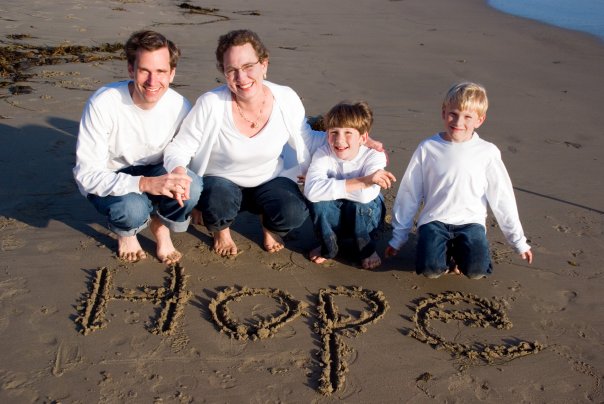I apologize for the frenzy of posts here, but there has been a lot of information being thrown at me and Krista is really having a rough time. Thank you all for your great level of care and concern.
As I mentioned in the last post, there is no longer a requirement for Rh-Negative platelets -- she can take platelets from any blood type. Because of this, they have ordered some platelets from stock and she's receiving those right now. UCLA does not have the facilities for HLA-typing their platelets, so it is a bit of a gamble whether or not they will get a good match. She is so low at this point, though, that even a mis-match is worth a try. If the gamble pays off and her counts go up, they will contact the donor to try to arrange future donations.
HLA-matching tends to go along racial lines, so the best chances of finding a match come from people of European descent, German in particular.
The Red Cross maintains a world-wide database of HLA-typed platelet donations, and UCLA has been trying for days to get a good match. There are other factors in addition to the HLA-typing, something about antibodies, that need to be matched as well. The Red Cross also contacts past donors that match a need, but it doesn't always work out for the donor to make a new donation. Because of all this, the Red Cross has not been able to provide anything for Krista.
A lot of people have been asking how they can help. Here's three ways to help:
1. UCLA Blood And Platelet Bank can schedule an appointment next week for you to donate platelets, and they can be designated to go to Krista (there are no fees for patient designated donations at UCLA). This would be particularly helpful if you are of European/German descent. They have a limited number of machines, so they probably won't be able to schedule you until next week. The phone number there is 310-206-6187. Don't be surprised if you get an answering machine and have to leave a message.
2. Donate platelets through your local Red Cross-affiliated blood bank and have them do a HLA-typing for your donation. Doing so will get your HLA-profile into the database and increase the odds of finding a good match for Krista. It is not uncommon for them to charge a fee for designating donations for a particular person, but that probably isn't the best approach with the Red Cross anyway. If an undesignated donation doesn't go directly to Krista, it will still go to help someone in need.
3. Do some research and tell people about how they can donate platelets in your area or organize a donation-drive. Many, if not most, people have never heard of platelet donation. Apheresis (donating platelets) is not like donating whole blood, it's less physically taxing on the donor (you don't get dizzy) but it takes a lot longer -- on the scale of 2 hours. Platelets are essential for blood clotting. Platelet transfusions are routinely needed to support patients undergoing cancer therapy, open-heart surgery, organ transplantation, and for patients with bleeding disorders. Platelets have a very short shelf-life and must be transfused within five days of collection. This requires constant replenishment of the supplies. An individual can make up to 24 platelet donations per year. The more people they have donating the easier it is to find matches for people, like Krista, who have platelet rejection factors.

1 comment:
Dear Mike and Krista,
I am Kelly's Mom. I am 0 negative and I am looking into donating in Krista's name along with my daughter Terie. Our thoughts and prayers are with you.
Love,
Kathy
Post a Comment